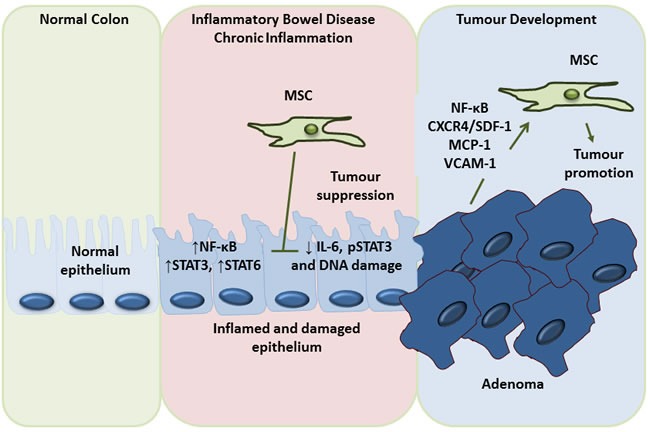Figure 5. Dual role of MSC in the prevention of inflammation induced colon cancer development and promotion of colon cancer metastasis.

Although the vast majority of the evidence points to a tumour promoting role for MSCs, there is some evidence to the contrary. However, this anti-tumour effect appears to be specific to the very early stages of tumour development. Throughout the course of a chronic inflammatory condition like inflammatory bowel disease (IBD) the epithelium becomes inflamed and damaged, leading to the production of factors such as nuclear factor kappa B (NF-κB), signal transducer and activator of transcription (STAT) 3 and STAT6, all of which are potentially tumourigenic. It appears that administration of MSCs at this very early stage can have a tumour inhibiting effect by decreasing interleukin (IL)-6 and phosphoSTAT3 signalling and reducing DNA damage. However, once this early stage has passed, MSCs recruited to the tumour by factors such as nuclear factor (NF)-κB, chemokine receptor type 4 (CXCR4), stromal cell derived factor (SDF)1, monocyte chemotactic protein (MCP)-1 and vascular cell adhesion molecule (VCAM)-1 serve only to promote tumourigenesis via the mechanisms mentioned throughout this review, namely differentiation to cancer-associated fibroblasts (CAFs), promotion of tumour growth, invasion, metastasis and angiogenesis and the dampening of anti-tumour immunity.
